Vitamin and minerals deficiencies can weaken the body and impact hair density and condition. The problem of hair loss should be treated as a complex disease – find the cause, cure and prevent it. Dietary supplements and vitamins, available in every pharmacy, can help your hair to be in good condition.
It is recommended to eat a healthy diet rich in vitamins and minerals as well as beneficial herbs. You can also use home-made masks which can strengthen, nourish and stimulate hair growth. Recently hair oiling has become very popular. This method helps keep your hair moist. There are many medical and natural treatment options which can strengthen your hair and reduce hair loss.
- 1. Causes of hair loss
- 2. Medicines and hair loss
- 3. Dietary supplements for hair loss prevention
- 4. Macroelements: zinc, sulphur and selenium
- 5. Methionine, cystine and biotin
- 6. Herbs for hair growth
- 7. Hair loss prevention
- 8. Interesting facts about hair care
- 9. Dietary supplements interactions
- 10. Natural hair care
Causes of hair loss
One of the most common causes of hair loss is androgenetic alopecia. It involves follicle hypersensivity to male hormones. Follicles are weak, dull and brittle. You lose more hair which is not substituted with new hair or it grows slowly. It leads to general hair weakening and thinning. Other factors such as genes, health and lifestyle influence your hair condition. Hair loss is a natural process in the body. However, you should only start to worry when you lose more than 100 hairs daily.
Excessive hair loss
Then we call it excessive hair loss and it is necessary to start looking for its cause and treatment options. Sudden hair loss can result from long-term and acute stress. Additionally, doctors indicate other causes of hair loss such as micro- and macroelement deficiencies. They can include zinc and iron. Another category covers hormonal disorders e.g. hyperthyroidism and hypothyroidism. Skin diseases such as dermatophytosis or seborrheic dermatitis can also lead to hair loss. Medicines such as anti-cancer drugs, oral contraceptives or anticoagulants can influence hair condition as well.
Poor diet
Poor diet can also influence hair condition. It is suggested to avoid eating sugar and processed food. Your diet should be rich in vitamins, essential minerals and protein. Everyday hair styling can result in hair loss. It is recommended to avoid frequent dying and using strong styling products. You should not tie your hair too tightly as it weakens hair bulbs. Doctors also advise avoiding high temperatures while drying your hair.
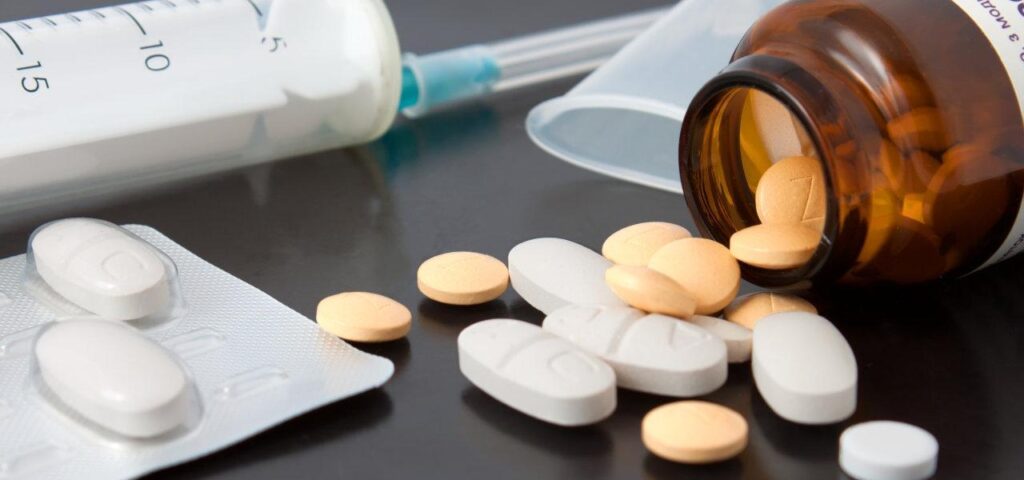
Medicines and hair loss
If you notice excessive hair loss, you should consult a doctor immediately. A specialist will analyse the problem’s causes and start treatment. Different treatment options can be used depending on the cause. If hair loss results from hormonal imbalance, a patient should undergo special treatment to regulate hormone levels. Deficiencies in nutrients should be supplemented with a balanced diet or medicines. Pharmaceutical companies offer advanced products which stimulate hair growth. An experienced doctor will be responsible in choosing an appropriate product.
Aminexil and Minoxidil
There are two well-known medicines to treat hair loss recommended by doctors such as Aminexil and Minoxidil. Aminexil is a liquid that is applied to the scalp. It nourishes follicles by improving blood circulation in the scalp. It can prevent and inhibit hair loss as well as enables better distribution of nutrients. Minoxidil has a similar effect and is available also in ampoules. It can help reverse hair loss effects within a short period of time. It needs to be used regularly to achieve good results. Many doctors usually recommend that men use Finasteride tablets which is a prescription drug. It inhibits the production of the male sex hormone – DHT.
Dietary supplements for hair loss prevention
Dietary supplements are products which can help prevent hair loss. Products available in pharmacies contain vitamins, minerals and herbs. Vitamins and minerals play a crucial role in alopecia treatment and their adequate levels are linked to healthy hair. Therefore, it is recommended to eat a healthy, well-balanced diet. Additionally, you can take dietary supplements. They include products high in vitamin A which regulates sebum production. Vitamin B can have a beneficial impact on hair condition. Vitamins C and E stimulate microcirculation in the scalp. Adequate oxidation and nutrition stimulate hair growth and make it shine.
Iron, chromium and copper
Iron, chromium and copper strengthen hair condition and prevent it from falling out. Haemoglobin enhances iron absorption. Iron atom from food binds its haem group to haemoglobin and can bind oxygen in the lungs and transport it through the body. But first iron must be absorbed into the bloodstream. The majority of food contains little iron or it is poorly absorbed. The whole process of iron absorption starts in the stomach where it further penetrates from the intestines to the bloodstream. It is a complicated process which involves various enzymes and vitamins. Calcium and magnesium are minerals which can prevent hair loss. However, it is important to note that both deficiency as well as an excess of vitamins and minerals is harmful.
Macroelements: zinc, sulphur and selenium
Macroelements constitute not less than 0.01% of total human body weight. They are essential for proper functioning and having a deficiency can weaken the body. One of the most important macronutrients is zinc which is responsible for the functioning of the immune system. Amino acids are key to hair growth and zinc regulates amino acids in the metabolism. It impacts keratin synthesis and vitamin A absorption which regulates the functioning of the sebaceous glands. A daily recommended intake of zinc is 15-20 mg and its source is oyster, beef liver, turkey, onion and green peas. Sulphur is another essential mineral for healthy hair, skin and nails.
Sulphur for hair growth
Sulphur is a basic element of keratin i.e. a protein in skin, hair and nails. It plays an important role in epidermis regeneration and inhibits skin aging. Sulphur is a building block of hair structure and is responsible for its health. It is sulphur that helps make hair shiny. You can find this mineral in many shampoos and conditioners available on the market. Sources of sulphur include eggs, nuts, milk, grain legumes, avocado, beans, peas and tomatoes. Selenium is another important mineral which nourishes hair due to its antioxidant properties. Together with vitamin E it protects hair from sunlight. Selenium prevents hair dehydration and supports a healthy thyroid. The main sources of selenium include pumpkin seeds, Brazil nuts, walnuts, eggs, cod, tuna and groats.
Methionine, cystine and biotin
Methionine
Methionine is an amino acid which stimulates hair growth and supports follicle nutrition. It has many roles in the human body such as supporting healthy lipid metabolism, acting as an antioxidant, regulating thyroid functions and a detoxifier. Additionally, methionine regulates nervous and muscle systems. It is a building block of hair structure and is widely used in cosmetics and dietary supplements. It enhances zinc and selenium absorption supporting hair condition. Fish and eggs are rich sources of methionine. Other foods sources of methionine include grains, broccoli, peas, beans, sesame seeds and grain legumes.
Cystine
Cystine is another amino acid which builds keratin. It plays an important role in healthy hair and the human body is able to synthetize it. Cystine with homocysteine and methionine strengthen hair shafts. Cystine is involved in the human body detoxing and has antioxidant properties. It is widely used in the cosmetics industry, particularly in haircare products. Cystine stimulates hair growth and reduces excessive hair loss if used regularly.
Biotin
The next important compound in hair nutrition is biotin. It is known as a beauty vitamin because it nourishes and stimulates hair growth as well as helps strengthen nails. Additionally, it reduces seborrhoea and supports healthy skin. Biotin deficiency symptoms include apathy, drowsiness, feeling of weakness and extensive hair loss. It enhances the hair matrix condition and supplies it with bioavailable sulphur. Additionally, biotin regulates skin metabolism and supports healthy roots and hair shaft growth. Sources of biotin include liver, egg yolks, soy and wholemeal flours. However, frequently biotin supplementation is recommended and you can take products that are available in a pharmacy.

Herbs for hair growth
You can use herbs to strengthen your weak hair because they can nourish follicles. A plant horsetail, rich in silica, is particularly recommended. Silica is building block of hair. It strengthens and makes hair flexible. Horsetail prevents hair turning grey as well as preventing split ends. You can also use rosemary which is rich in beneficial antioxidants. They neutralize free radicals, improve scalp microcirculation and stimulate hair growth. Another beneficial plant is birch which has anti-inflammatory properties. It helps regenerate hair and makes it shine. Nettle regulates sebaceous glands functions and impairs the harmful effects of DHT. Lavender controls sebum production and stimulates circulation. Pharmacists also recommend chamomile which soothes skin itching and irritation. Ginseng regulates cell metabolism and improves blood circulation. Herbal products will nourish the scalp and strengthen hair.
Hair loss prevention
Lifestyle is a crucial factor in hair loss prevention. It is suggested to avoid stress and lead a healthy life. It is recommended to use natural cosmetics on a daily basis. Make sure they do not contain chemical ingredients nor alcohol. In addition, proper everyday hair care routine is important. Wash your hair with lukewarm water and avoid high temperatures while drying. Specialists also advise to avoid using a flat iron and lots of hairspray. Scalp massage can help prevent hair loss. It stimulates scalp microcirculation and nourishes follicles. It was noted that different stimulants e.g. cigarettes and coffee have detrimental effects on hair condition. Therefore, it is recommended to avoid them. Proper hydration is crucial for healthy hair. In addition, you should regularly trim your hair ends. If you take medicines or products for hair growth, you should consult a doctor before your stop taking them.
Interesting facts about hair care
A well-balanced diet rich in essential vitamins and minerals can also prevent hair loss. Specialists recommend to reduce the number of cups of coffee in a day and use xylitol, erythritol or stevia instead of sugar. It is particularly recommended to eat green vegetables rich in antioxidants which slow down the skin aging. Moreover, omega-3 in oily fish has been linked to many health benefits. Beef is an excellent source of protein because it contains zinc and iron. It is suggested to eat beef twice a week.
Diet
Whole meal bread and brown rice are also packed with beneficial nutrients. It is crucial to eat food rich in proteins such as beans, lean meat and dairy products as well as healthy fats including linseed, rapeseed and olive oils. People with weak and thin hair should regularly eat gelatin which will strengthen and improve hair condition. You can add gelatin to mixed fruits and milk and eat it as one daily meal. A smoothie with gelatin is a healthy meal which additionally helps regenerate your hair. Gelatin is also important for healthy skin and nails.
Dietary supplements interactions
You should remember that more is not always better. Some dietary supplements can interact with others and too high a dose of vitamins can lead to different disorders and side effects. Vitamins and minerals are essential in many important processes in the body. They are usually supplied with food but sometimes it is worth starting to take dietary supplements with vitamins and minerals. The recommended intake of vitamins depends on your lifestyle and diet. Excessive intake of vitamins A, D, E and K is common because they are fat-soluble. Both an excess and deficiency of vitamins can result in hair loss. Excess of vitamin C leads to acidification and calcium removal. Iron taken with calcium can inhibit iron absorption. You can take vitamin A with vitamin E as they are both fat-soluble and more bioavailable. It is recommended to take iron with vitamin C and calcium with vitamin D.
Natural hair care
You can use hand-made masks to strengthen your hair. The most common are egg yolk, lemons and olive oil masks. They make the hair shiny and healthy again. You should leave mask for at least 1 hour. Then rinse thoroughly and shampoo your hair. You can mix 2 tablespoons of honey and 3 tablespoons of olive oil to have an excellent moisturizing hair mask. Put the mask on your hair, wrap with a towel and leave for no longer than 15 minutes. You can also do a mask which stimulates hair growth. Mix grated ginger, 3 tablespoons of olive oil and 2 teaspoons of lemon juice. Then apply on the scalp and leave for 10 minutes. Next shampoo your hair thoroughly. The mask can be used only once a week.
Castor oil hair mask
Castor oil can be used as a hair mask. Castor oil used properly can have spectacular results and strengthen your hair. Castor oil was commonly used to alleviate constipation. But recently it has been frequently used as a hair mask. A castor oil hair mask makes your hair soft and silky without split ends. When you apply castor oil on the scalp it can strengthen hair follicles and improve hair growth. Apply a small portion of lukewarm oil to the hair and scalp and shampoo your hair after a few hours. You can use different oils or do hair oiling. This method allows closing the hair cuticles and thus retaining the inner hair moisture level. In addition, hair oiling improves hair condition making it more flexible and shiny. It is recommended to oil your hair every 2-3 days and leave a mask for about 40 minutes. Then shampoo your hair and style as usual.
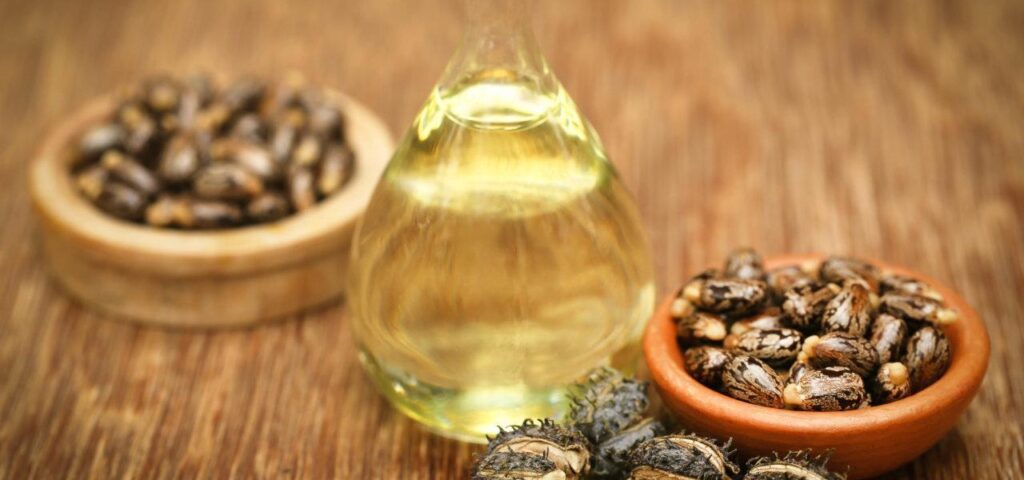
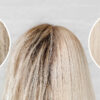
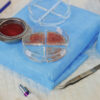


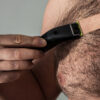

Hi,
I’m thinking of getting a hair transplant. However I am HIV+ and am unsure if you can undertake the procedure (viral load undetectable, CD4count over 800) My hair loss is hereditary.
If you can do the procedure what would be the cost for say 5000 grafts? And will that price be for the treatment only or d you do a package? (Hotel, transfers etc.)
Thanks for your time,
Thomas Adair
Dear Adair,
Thank you for your message.
Please visit me on consultation and take all your blood tests and medical history with you. CD4 is very high soo good for you. There is no possibility to take more than 3500-4000 grafts (without damaging donor site). I have to see how yours looks.
Please contact: +48 535 386 208.
Regards,
Piotr Turkowski